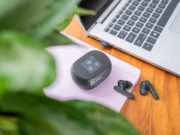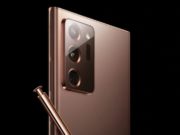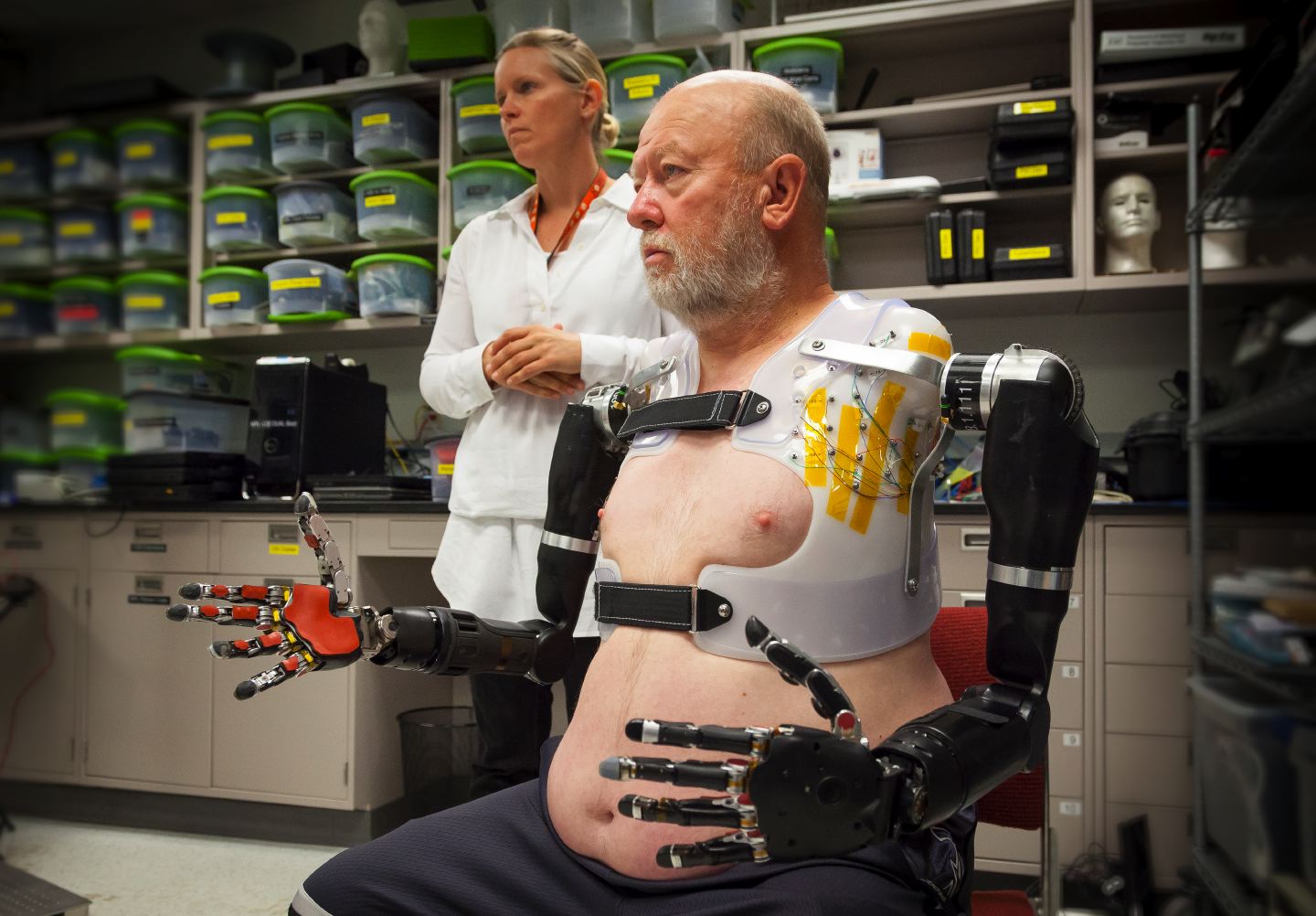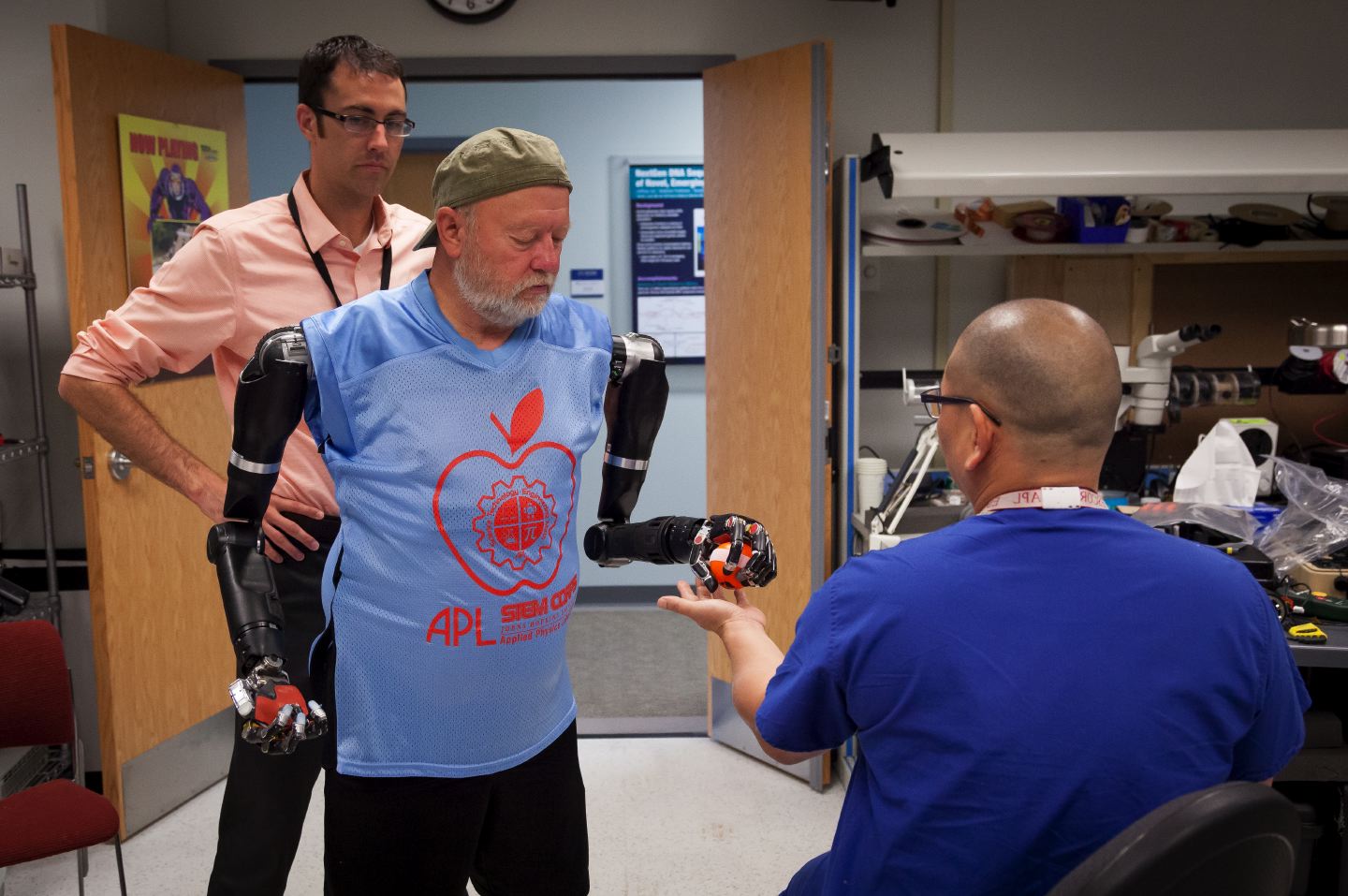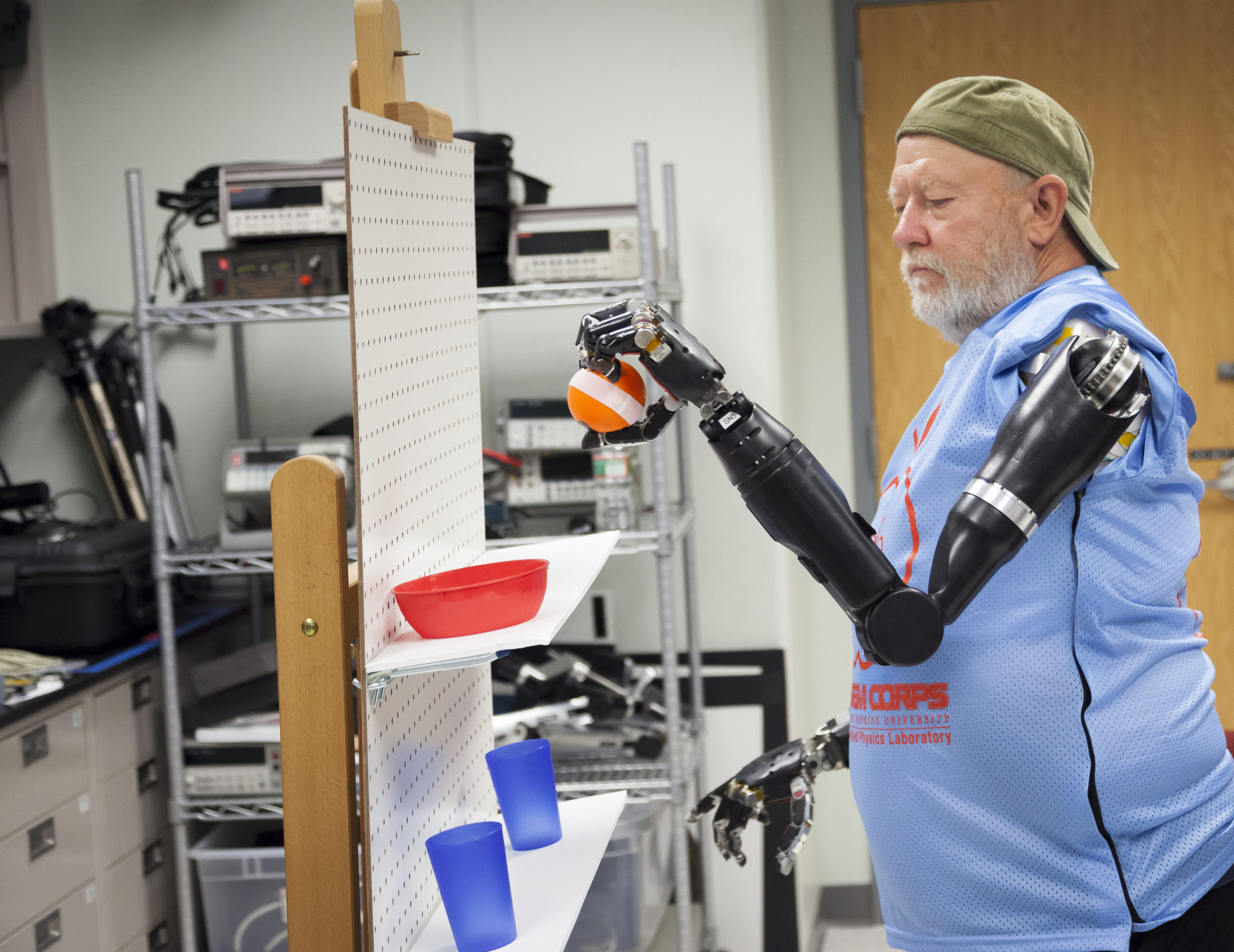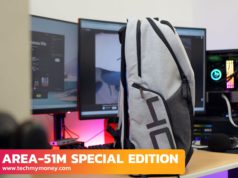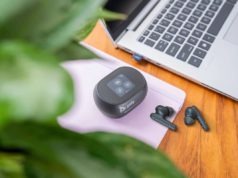DARPA loves to create robots, and robotic limbs. But here is two DARPA-funded robotic limbs controlled by human thoughts alone. Colorado’s Les Baugh had two bionic arms attached to his shoulders. Baugh lost his both of arms 40 years ago in an electrical accident, so these prosthetic arms represent a big lifetime change for him. This past summer, now 40 years later, a Revolutionizing Prosthetics Program decides to run several tests at the Johns Hopkins Applied Physics Laboratory. The researchers of this project have developed Modular Prosthetic Limbs (MPL) over the past decade, but they say that Baugh is the “first bilateral shoulder-level amputee” to wear two MPLs at the same time. Baugh had to undergo a “targeted muscle reinnervation procedure”, which reassigned the nerves that were created to control his arms and hands.
Once the procedure is finished, the team recorded his brain patterns for each muscle he moves, and they had him control his virtual prosthetic arms to prepare for the real things. Since his real arms were cut off from the shoulder, they also had to design a custom socket for his torso where the prosthetic arms can be attached. All their preparations were worth it in the end, though, as Baugh turned out to be a brilliant test subject: after just 10 days of training, he was already moving cups from one shelf to the other just by thinking it.
As Courtney Moran, one of the researchers, said:
We expected him to exceed performance compared to what he might achieve with conventional systems, but the speed with which he learned motions and the number of motions he was able to control in such a short period of time was far beyond expectation. What really was amazing, and was another major milestone with MPL control, was his ability to control a combination of motions across both arms at the same time. This was a first for simultaneous bimanual control.
Baugh now can only use the prosthetic arms in a lab setting at the moment, but the John Hopkins team aims to develop MPLs he can take them home and use whenever he wants. Baugh is looking forward to that day.
“Maybe for once I’ll be able to put change in the pop machine and get pop out of it,” he said. He’s looking forward to doing “simple things that most people don’t think of. And it’s re-available to me.”









